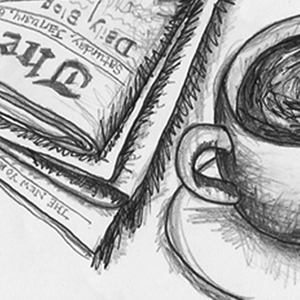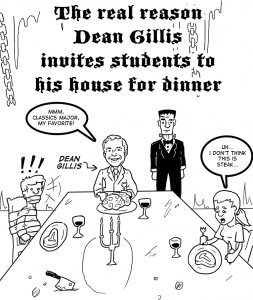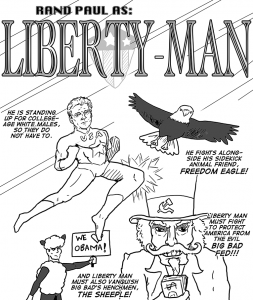 A train—massive and wheezing—pulls into the sleepy station, uses all of its remaining steam to slow its momentum and click-click-click to a gradual stop. It holds its passengers enchanted under a spell of deep and quiet sleep, heavy heads tilted against windows or balancing on a bundled-up jacket—a substitute pillow. Though many have ridden and slept under the protection of this enormous machine for some time now, it seems but a slight moment of relief in their tiresome daily routines. Lids reluctantly open; women in business suits fix disheveled hair. Each passenger, having shared an intimate repose in a single vessel with each other passenger, now quietly reaches for his belongings and walks softly to his next journey—to work, to home, to the closest coffee stand, or to wherever else his feet will oblige to carry him. Relics of their interrupted dreams linger on with them, barring them from the present world for a few more minutes, cushioning an otherwise abrupt re-entrance.
A train—massive and wheezing—pulls into the sleepy station, uses all of its remaining steam to slow its momentum and click-click-click to a gradual stop. It holds its passengers enchanted under a spell of deep and quiet sleep, heavy heads tilted against windows or balancing on a bundled-up jacket—a substitute pillow. Though many have ridden and slept under the protection of this enormous machine for some time now, it seems but a slight moment of relief in their tiresome daily routines. Lids reluctantly open; women in business suits fix disheveled hair. Each passenger, having shared an intimate repose in a single vessel with each other passenger, now quietly reaches for his belongings and walks softly to his next journey—to work, to home, to the closest coffee stand, or to wherever else his feet will oblige to carry him. Relics of their interrupted dreams linger on with them, barring them from the present world for a few more minutes, cushioning an otherwise abrupt re-entrance.
This underground station, this un-loved tunnel, is dimly lit with a character of indifference and resignation, as it always is at this early hour of the morning. The only impassive energy comes from Sid, a woman, young and restless, diminutive in a way that belies her presence, marching down and back the walkway along the tracks, tracing and re-tracing the same 10-foot strip—noisily and busily quiet. While later in the day this bustle of movement will have been well-blended amongst all the others, it is so starkly ill-fitting at this particular time of day. She clutches a crinkled train ticket in her Thumbelina hands and waits, and waits, her eyes fixated on the same patch of ground, noticing no one and being noticed by hardly anyone.

In a slight act of rebellion, Sid nudges her toes over into the strip of yellow paint, past the safety line. She steps with both feet into the yellow strip of land, and dares herself to let her toes hang out over the edge of the platform, out over the train tracks below. She does not want to fall into the gaping hole. She wants someone to stop her, a guard to yell at her, that surly looking train hostess in the perfectly-pressed suit to drag her back to the dull grey of the other end of the platform. She wants to put up a fight, to be a nuisance, and most of all, to scream violently at somebody, to say something hostile and obscene. Nothing of the sort happens. Sid doesn’t make it over to the edge. She is wearing three-inch heels, and doesn’t trust herself. Zee, her husband, has been gone for days. She hasn’t had anyone to bicker with for days. She hasn’t had anyone to cook her dinner for days, or to wake her up in the morning for days, or to call her on the train ride home for days, or to keep her from falling over the edge of the platform for days.
Trains rumble through—a million bowling balls crashing against a wooden floor—none of them hers. Trains rumble through, generate a gliding breeze in the still, hot air. It kisses the round of her cheek, ruffles her hair, tickles the light fuzz of her forearms. Perhaps something, somewhere in this tunnel, still loves her, relieves her, touches her gently. A fragment of what once dwelled here, still here.
The rumbling comes and comes, and stops in front of her feet. The breeze is gone. She inhales the stiff air, steps onto the train, and slips into the first empty seat. He must have sat in the same seat at least a few times—on this train, on this torn burgundy leather cushion, or perhaps, on the one right next to hers, or across from hers, or a few seats ahead of hers. He had called her on the train ride from the Philadelphia 30th St. station back to Forest Hills, the one he took every evening back home to his English Breakfast tea, that day’s New York Times crossword puzzle, and Sid. It was a $3.60 fare, a 12-minute ride, each way, every day. He said he was on his way home, but he never came.
Sid kept coming back, taking the same train, the one he had always taken to work, and the one he had always taken home, still expecting to find him there, somewhere along the way, still in transit, waiting for a train, or two, or 20, that he had somehow missed.
Sid got off at Ardmore, stood on the platform and looked around, watching the crowd whirl past, with no familiar face in sight. She sat down on the wooden bench to watch a little longer. Sid rubbed her pixie-thumb against the peeling wood, daring a splinter of it to drive through a layer of skin. But it didn’t. And the crowd continued to hurdle past—a faceless, swarming army, charged for the day’s work.
Sid picked herself up and joined them, but appeared a straggler in comparison, with less drive but more nervous energy. The sun burned its first into the sky, and seeped through the horizon, as Sid made her way to the Main Line Times office, following the path that Zee took every morning to work and every evening to the station.
The closer Sid got to Main Line Times, the more invigorated she became, so that by the time she arrived at the revolving door, she barreled through, flew out the other end, and hurdled herself over to the editor’s office to demand some information on her husband’s whereabouts. They had been the last to see him.
As the rest of the staff observed her entrance, a slight murmur ran through the room, accompanied by a shuffle of slight movements, fingering through stacks of recently old newspaper articles.
A few moments later, the editor, Peter Humphrey, a tall, lean man, was ushering Sid out of his office and forcing her to a coffee table in the corner. Sid was quiet, but vigorously rubbing her fingers up and down the length of her armrest, as she waited for someone to tell her something, anything, about where her husband had been.
Allen,” Mr. Humphrey called out, “bring over last Friday’s newspaper for Sidra, here, and let her look through it.”
Allen scurried over with a newspaper in hand and whispered in Mr. Humphrey’s ear.
“Here you are,” Humphrey said, handing the paper to Sid. This one has some good reading material. Just flip through it. I will be done with that conference call in just a few minutes, and then we can talk. Get her a cup of coffee while she waits, Allen.”
Sid watched Mr. Humphrey disappear away into his office, stared at the front-page blankly, and set the paper down on the table. Allen set some coffee down, smiled at Sid, and told her that he didn’t like to read the paper either. “I’d much rather flip through it and look at all the pictures instead,” he told her.
Sid wanted him to leave her alone and go back to work, so she began flipping through it casually to appease him. Allen left her and scampered back over to his cubicle. Sid sipped on her cup of coffee as she flipped through the pages, encountering pictures of war-torn landscapes, hurricane-ravaged towns, and the country’s most prominent senators and statesmen. Skipping a few pages, she moved deeper into the paper and found pictures of lesser known people, local events like street fairs and business openings, car accidents, and one with a particularly arresting photograph of a train station accident. Sid recognized the station as the Forrest Hills station she had just been at, so she stopped to linger there a little longer.
There were two panels to the photograph—one panel was of the station itself, and the other of a man—young, dark hair, dark eyes, light skin. Sid thought that even in that black and white picture she could see a shade of irritated pink in his cheeks and lower lip, and a very slight olive-glow in his skin.
Sid skipped down to the title of the article—“Investigating the Gap”—and skimmed the brimming, black print. Her eyes ran through it, phrases blazing out at her:
“On October 13, 2004, 7:22 a.m…”
“…the train Zakaria Zuckerman was waiting for unexpectedly arrived on the eastbound track.”
“Passengers hurried across platform…”
“…almost at the train door…tripped and fell into a large gap between the train and the platform.”
“15 inches.”
“…rolled over into the opposite track…run over by a train heading in the opposite direction.”
“…declared dead.”
Sid knew the face of the man in the photograph. It was the one she had been looking for at the train station. It was Zee.
Sid folded the newspaper back up, took a last mouthful of now-lukewarm coffee, and got up to leave. Mr. Humphrey came out of his office and watched the revolving door carry her out. Allen ambled over to Humphrey and asked, “Are you sure that was the best way to do it?”
“Retelling the story to her wasn’t working. She’s been back here every day for a week, pretending not to know—denying. Had to try something new, that’s all. Maybe she will be back tomorrow, and I’ll try something new. Or maybe she won’t be back,” he said defensively but without conviction. “Clear the coffee table, Allen, and keep that paper somewhere you’ll be able to find it tomorrow morning.”
Outside, the late-fall breeze had begun to brew, sending a slight chill through the earth and through Sid’s bones. She shrank into her trench coat, her face disappearing beneath the cotton fabric, but her hair wild in the wind.
She arrived at the 30th St. station and watched as trains soared past—raging monsters that fled without end, to the other end of the town, the district, the country. She saw a flickering reflection of her face in the passing windows like a reflection in a quivering, brackish pond. She thought she saw Zee’s face there next to her own, but it flashed at her, and it was only for a moment, and she did not look next to her to check if he was there.
Sid boarded the next train back to Forrest Hills, like a solitary ghost aboard a train of sleeping zombies. She observed the man a few rows ahead of her, as his chest rose and sank, slow and heavy. It seemed that this was the only time of the day when anyone got any real sleep—on the train ride from one place to another. It seemed that people could only truly rest knowing that they were going somewhere, following some path. The rhythm of the train wheels pressing and rolling against the tracks put everyone at ease.
Sid closed her eyes, and slept for the first time in a long time.





